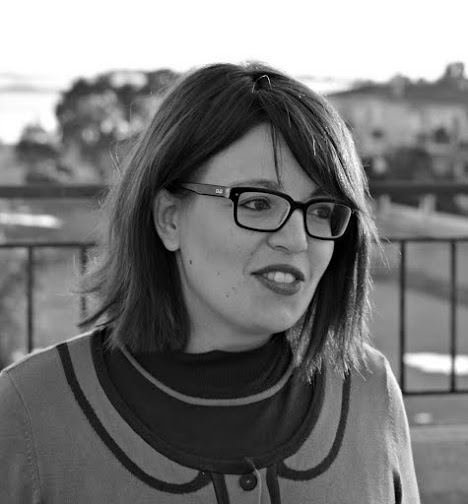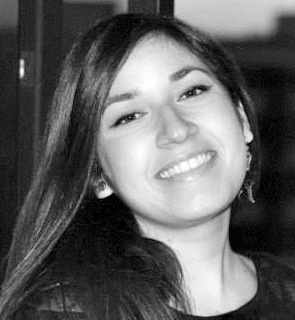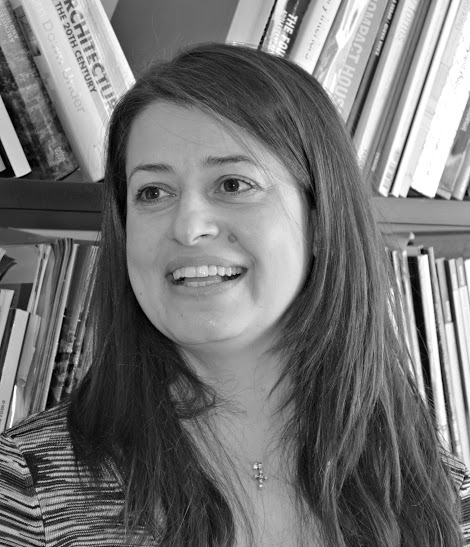What makes people invest in volunteerism and activism? Why does political innovation and the reinvention of democracy in Greece matter so much to some people?
By Stella Kasdagli
What makes people invest in volunteerism and activism? How and why does a woman in Greece in 2015 find the time and energy to engage in civic action which may match her ideological pursuits but does not have the instant tangible result of contributing, for example, to one of the well known humanitarian organizations? Why does political innovation and the reinvention of democracy in Greece matter so much to some people?
These are some of the questions I posed to 10 women (of all ages, with or without stable employment, with and without family and/or children) who participate in the projects of Place Identity, a non profit organisation based in Athens which aims at empowering the institutional role and efficiency of Civil Society in Greece. Through different projects (such as Politeia 2.0, Syntagma 2.0, Imagine the City, IDEATOPOS, Domain_Agora) the network develops citizens’ workshops, conferences, exhibitions, trainings, awareness and advocacy campaigns across Greece. The common thread is political innovation; research and experimentation on redefining decision making processes, at both a local and national level. Here is what some of the protagonists of those projects said to me.
Mary Karatza
Strategic designer, cofounder of Place Identity NGO
![]() How did your involvement with the NGO Place Identity start?
How did your involvement with the NGO Place Identity start?
It all began through discussions with friends and colleagues seeking ways to solve urban problems, that started to become more regular after 2009. We observed that in Greece there is no lack of creative solutions but rather a lack of processes to facilitate citizen participation and infuse their cities with their solutions and creativity.
What is the greatest reward from engaging in political innovation projects?
The constant questioning and analytical thinking developed through these projects helped me gain a more practical understanding of the problems we currently face. And this understanding leaves no space for stereotypical interpretations or fear, both of which have been cultivated for years, debilitating Greek society.
What does political innovation mean in practice and in our daily lives?
To radically question the decisions you have made, to question if they limit you, and to feel free to create the new at any given time. To always choose the most difficult and most colourful path. To overcome the excuses you make in order not to collaborate. To focus on how you will facilitate others.
What is the biggest challenge that women are facing today?
Τhe challenge of finding the right balance between our family, professional and political responsibilities. I mention political responsibilities because the sensitivity and practical thinking of women ought to be integrated in political procedure at all levels.
Questions of inequality, gender discrimination and conservatism are to be solved through institutional reforms or rather through individual change?
As long as we separate change into institutional and individual, we fail to realise the systemic nature of today’s challenges. Change happens simultaneously at all levels and the key question is to see where we can break the vicious circle. I think that political freedom has always cultivated civilisation, evolution and change, whereas closed power structures have always reproduced conservatism
Has the financial crisis made Greek society more progressive or more conservative?
I think it is too early to conclude on that. I observe that the crisis has sparked both conditions. Conservatism is easy to recognise, because it is more familiar to us, whereas progress is more organic and requires time to become visible.
What would you answer to an unemployed woman claiming “how can I care about activism when I cannot afford my rent?”
When I got to the point of being unable to afford by own rent, I could not bear the thought that my concerns from then on would be limited to the stress of finding every month money to pay for my rent and my bills. Looks like I will not be able to afford my rent with or without activism in my life so why not give it a try?
Do you believe that the political change in Greece after the last elections will affect the development of initiatives for political innovation? To what extent do you believe that governance will substantially change after the recent turn to the left?
Τhe renewal of individuals and agendas definitely helps in that direction, however Civil Society in Greece remains institutionally excluded from decision making processes and people are left to a passive role of spectators until the next elections. The crucial fact we need to understand here is that our country’s deadlocks are not merely due to problematic individuals, but are mainly caused by problematic institutions and processes that allow derailment, abuse of power and the control of politics by closed networks of private interests. The challenges we have to face have to do with systemic, institutional issues and can thus not be easily answered through the narrow channels of partisan ideologies. They will be answered by any political force which acknowledges the value of political freedom and ensures its institutionalization.
Stephania Xydia
Cultural Manager, cofounder of Place Identity NGO
![]() How did your involvement with the NGO Place Identity start?
How did your involvement with the NGO Place Identity start?
I returned to Greece in 2011, during the days of the indignados movement on Syntagma square. A random encounter with Mary Karatza was the starting point of fascinating discussions, new connentions and creative brainstorming with young people on issues of urban regeneration and citizens’ participation.
What is the greatest reward from engaging in political innovation projects?
The greatest reward is to see stereotypes of Greek society falling apart and to see individuals making personal and collective breakthroughs within creative frameworks of interaction. At a more personal level, I feel moved when the methods we develop become examples that inspire similar teams abroad, and also when we create new jobs in the Social Economy framework.
What does political innovation mean in practice and in our daily lives?
Political Innovation involves new decision making processes on crucial political issues. Current conditions demand new processes, that empower citizens’ participation, apply transparency and openness, utilize the possibilities of technology but also new deliberation methods in physical space. In practice, this means that as a citizen, I have the right, but also clear institutional ways to influence public policy with my ideas, whether these have to do with the regeneration of the neighbourhood’s square or with the creation of a new constitution for my country. As the political system of parties, syndicalists and experts fades away, a new system is emerging, which features thematic networks of action, interdisciplinary working groups, open data and participatory citizens’ workshops, which is well worth exploring.
What is the biggest challenge that women are facing today?
The need to adapt to and respond to ever increasing roles while the day continues to have only 24 hours and the week only 7 days. The need for effective management of time, information and obligations takes us to speeds that would burn the strongest computer processor.
Has the financial crisis made Greek society more progressive or more conservative?
The financial crisis and the insecurity caused by it gave space to our darkest sides to reproduce fear, hate, distrust, revenge. Let’s not forget however, that before each tsunami there is a mysterious retreat of waters, and that every breakthrough entails chaos. I feel that society’s resistance to change is retreating and that the crisis can be the starting point for a transition with a new dynamic of progress.
What would you answer to an unemployed woman claiming “how can I care about activism when I cannot afford my rent?”
Activism can be a tool to break the vicious circle of unemployment and give new meaning to a woman’s life. I have met many women who through civic engagement have gained self-esteem, inspiration and new interests, while developing human connections and skills that catalyzed their efforts to find a decent job.
Do you believe that the political change in Greece after the last elections will affect the development of initiatives for political innovation? To what extent do you believe that governance will substantially change after the recent turn to the left?
Ιt is too early to draw conclusions but the first signs are encourarging . We read in the news about the government’s intention to introduce the Citizen’s Initiative in the Greek Parliament and we hear the new Minister of Administrative Reform speak about the need for a new constitution for Greece, created by the citizens. Such news would have sounded like a joke a few years ago. Questioning the status quo is a Europewide phenomenon and the big question is whether Greece will play a constructive role in this process offering both a new narrative as well as practical solutions for the transition of politics into new models of governance.
Whether the new government will build on the readiness of civil society and open up to alternative proposals, or whether it will develop just another closed network of corruption in new shades of red, remains to be seen, causing us both enthusiasm and agony.
Evika Karamagioli
Legal consultant, expert in eDemocracy and eGovernance
![]() What is the greatest reward from engaging in political innovation projects?
What is the greatest reward from engaging in political innovation projects?
To see all that is being analysed experimentally in theory and research, being developed dynamically into practice.
What does political innovation mean in practice and in our daily lives?
The realisation that politics is not something distant and foreign to us, but a core component in our lives.
What is the biggest challenge that women are facing today?
To ensure gender equality at all levels in the economy, and to combine the multiple roles that a woman has to inhabit within especially challenging social, economic and political realities.
What is, from your perspective, the profile of people who participate in your projects?
Because our activities take place in Athens and beyond (eg. Kozani, Mesologgi, Thessaloniki) we have a diverse sample of Greek society, but with a majority of women, something that is especially encouraging for the dissemination of our projects and especially “charming” according to the audience’s comments.
Do you believe that the political change in Greece after the last elections will affect the development of initiatives for political innovation? To what extent do you believe that governance will substantially change after the recent turn to the left?
It is a fact that in the past electoral period, terms such as self-organization, collectivas, social innovation have been used and supported with different levels of enthusiasm by many individuals with or without partisan connections.The essence however remains the same, and the objective remains: to move from a wish list of words to substantial action on the issue. This can only happen through a redefinition of the current political system so that citizens’ participation in policymaking is not only allowed, but encouraged in practice.
Gianna Karmali
Interior and graphic designer
![]() What is the greatest reward from engaging in political innovation projects?
What is the greatest reward from engaging in political innovation projects?
The communication and interaction with fellow team members, our collaboration to achieve collective positive objectives, the opportunity to share my thoughts, worries, challenges. Above all, a window of opportunity for a brighter future.
What is the biggest challenge that women are facing today?
I find it hard to separate “female” daily challenges from “male”. I think that today more than ever we stand together facing difficulties with regards to our quality of life and psychology.
Has the financial crisis made Greek society more progressive or more conservative?
Beyond the financial crisis, our behaviour and our era’s phenomena are difficult to interpret from a perspective of percentages and majorities. One can encounter all sorts of behaviours, depending on the microcosm in which one lives.
What would you answer to an unemployed woman claiming “how can I care about activism when I cannot afford my rent?”
That everything depends on energy and interaction. An active human being cannot live without it. These dynamics make one useful for social causes, and at the same time the skills one gains are a bonus in the eyes of employers looking for executives worth investing in.
Olga Daskali
Lawyer, member of the Mesologgi Bar Association
![]()
How did you get involved with the NGO Place Identity?
My first participation was in 2012 in the first IDEATOPOS conference in Volos. After that, together with the youth group “Erodioi” we organized the exhibition Imagine the City in Mesologgi in April 2013. We currently participate with a team of active citizens in the project Politeia 2.0, organizing a training programme in “The Art of Participatory Leadership” and a Citizens Workshop for “Syntagma 2.0” (redesigning the Greek Constitution).
What does political innovation mean in practice and in our daily lives?
For me its the realization of the role of the citizen. The realization that we are parts of one whole. In this period, the notion of innovation in politics stresses the need to reevaluate policies that have (or have not) been applied. In this rethinking process we want to be active participants, expressing our opinions and cocreating new solutions. In daily life, participation can be applied everywhere, as long as you use the right tools, set clear objectives and ask the right questions. Who is supposed to take decisions on our behalf?
Questions of inequality, gender discrimination and conservatism are to be solved through institutional reforms or rather through individual change?
Institutions set the framework, individuals make the difference. Let’s not forget that institutions are created by individuals. Hence institutional reforms can contribute to the sustainability of change, while individual initiatives lie at the core of substantial change and that can be seen in daily life.
Has the financial crisis made Greek society more progressive or more conservative?
We are in a period of awakening, which brings to the surface many facets of Greek Society. These include progressivism and conservatism, which can be found in any society. I would however comment, that I observe more fear, lack of selfesteem and attachment to old habits.
Do you believe that the political change in Greece after the last elections will affect the development of initiatives for political innovation? To what extent do you believe that governance will substantially change after the recent turn to the left?
I hope we will finally see the constitutional acknowledgment of civil society in Greece. That would be a political innovation! And I hope the next Constitution of Greece that is our political roadmap will come from citizens themselves. The tools are there but political will is necessary. Recent developments in Greece can only be described as encouraging. But we are still far from substantial change and hard work is required. During the Citizens’ Workshop we hosted in Mesologgi in the context of Syntagma 2.0, a lot was said about political education. I would be glad to see political education being promoted through formal and informal educational activities. After all, the city is what is is because its citizens are who they are. Same goes for our country. We can make the difference.
Maria Kikidou
Urban Planner
![]()
How did you get involved with the NGO Place Identity?
In June 2014 I contacted the organization as an intern candidate. Looking for work in the field of urban planning (especially participatory projects) in Greece is not that easy, considering the financial situation and the current institutional framework. While searching for an institution in Athens that undertakes such research, I stumbled upon the NGO Place Identity. I was positively surprised by its involvement in international projects and by its longterm vision for the institutional establishment of citizens’ participation.
What is the biggest challenge that women are facing today?
The institutional changes undertaken for women’s political rights did not focus on the improvement of their position in Greek society, but took place rather as a consequence of EU directives or as attempts at appearing progressive. The superficial approach to such policies and the lack of education that could support them has lead to a difficult reality for Greek women: limited freedom of choice and perpetuation of social stereotypes that overlook the different needs of the two genders.
Questions of inequality, gender discrimination and conservatism are to be solved through institutional reforms or rather through individual change?
I believe that one’s choices in daily life makes politics. Thus, I consider it important to change our own way of thinking at a personal level, which in turn can be expressed collectively. Of course, the establishment of a legal framework that can support, express and inspire this change is equally important.
What would you answer to an unemployed woman claiming “how can I care about activism when I cannot afford my rent?”
I cannot offer easy answers when one’s livelihood is at stake, however activism itself can be a great source of learning. Of course it is easier to engage in activism when one has covered one’s basic needs and financial responsibilities, however it is worth remembering that it is investments in longterm change that can provide the biggest benefits.
Elisavet Spyridou
Psychologist Psychotherapist
![]()
What does political innovation mean in practice and in our daily lives?
I will personally define it based on the concepts of care and solidarity, which are connected to the position of women, since in society care is a value and practice of female gender. I view political innovation as an attempt to redefine the role of the ctitizen and politics in general, through the subversive lens of care. This perspective has strongly influenced the way I stand in the world and my interpretations of political life. Ι am called upon to care for the issues that concern me, providing care to the relationship with my fellow citizens. That is a difficult exercise, at both a psychological, cognitive and practical level.
What is the biggest challenge that women are facing today?
How she will continue her pursuit of self-realization that is the definition of her identity beyond her role as a daughter, mother, wife in a financially and socially suffocating environment.
Has the financial crisis made Greek society more progressive or more conservative?
Τhe fear that is triggered by the loss of what we took for granted, comes with a return to primitive mechanisms such as polarisation, reductionism, generalisation, radicalism. At the same time, the vacuum that is formed through the destabilisation of the self- explanatory, gives birth to a leap ahead, leaving space for subversive questions and radical dispute of the status quo.
What would you answer to an unemployed woman claiming “how can I care about activism when I cannot afford my rent?”
The lack of money is one of the most serious consequences of unemployment. Equally serious however are consequences such as social isolation, partial loss of personal identity and loss of stability and structured daily routine, since our society is heavily centered on employment and income. A shift to the commons and collective action can become an opportunity to experience how human needs such as identity, support, value, meaning, structure, can be met beyond the professional arena.
Do you believe that the political change in Greece after the last elections will affect the development of initiatives for political innovation? To what extent do you believe that governance will substantially change after the recent turn to the left?
Most of the new governments’ statements are reviving hopes, not only for strengthening citizens’ participation in public life but also for the necessary institutional acknowledgment of civic engagement.
Stella Gamvrelli
Lawyer, mediator, trainer, life & executive coach
![]() What is the greatest reward from engaging in political innovation projects?
What is the greatest reward from engaging in political innovation projects?
The satisfaction of contributing to a project that can have a big impact for my country, and Europe more widely.
What does political innovation mean in practice and in our daily lives?
A different way of participating in society, of taking decisions at local, regional and national levels, of existing as political beings.
What is the biggest challenge that women are facing today?
That we often don’t realize the strengths we have as women and thus don’t trust them.
Has the financial crisis made Greek society more progressive or more conservative?
During these years a great part of society’s dynamic has retreated, however at the same time there is a great need for people to believe in the new and see that there are new ways for a society to move forward. I remember people coming to workshops in a sceptical mood and leaving full of hope and convinced that we can as simple citizens bring about change in our environment and society through collective and participatory processes.
Christina Faitaki
Marketing consultant, volunteer
![]()
What does political innovation mean in practice and in our daily lives?
Τhe way we have managed our country’s problems in the past years has been proven inefficient. Hence we need to find new ways to organise our society, take decisions and connect them with entrepreneurship and innovation.
What would you answer to an unemployed woman claiming “how can I care about activism when I cannot afford my rent?”
First of all activism is an escape that keeps a person alert. Secondly, activism can contribute to changing conditions, so that in a few years we can all afford our rent.
What is, from your perspective, the profile of people who participate in your projects?
They have a strong willingness to give to their country and their fellow man, they have a high sense of social responsibility and work collaboratively in order to achieve common goals and fulfil social needs, undertaking the transition from the “I” to the “we”.
Fiorela Linatopi
Student in Business Administration, TEI of Piraeus
![]() What is the greatest reward from engaging in political innovation projects?
What is the greatest reward from engaging in political innovation projects?
The diversity of knowledge I receive on a daily basis and the interaction with people that inspire me with their vision and efforts.
What is the biggest challenge that women are facing today?
Beyond the financial crisis and the problems it has caused in every Greek home, and thus to both genders, I think that the contemporary woman is going through a crisis of identity. The problem is that there is no clear answer to the question “who am I”, because she cannot find positive role models in her environment.
Questions of inequality, gender discrimination and conservatism are to be solved through institutional reforms or rather through individual change?
I don’t think that in western culture the question of discrimination is as strong as in eastern societies. Nevertheless, I think that the problem is mostly individual, because it is the parts that make the whole. Thus, drastic change must start from our own way of life, from what we do on a daily basis.
 How did your involvement with the NGO Place Identity start?
How did your involvement with the NGO Place Identity start? How did your involvement with the NGO Place Identity start?
How did your involvement with the NGO Place Identity start? What is the greatest reward from engaging in political innovation projects?
What is the greatest reward from engaging in political innovation projects? What is the greatest reward from engaging in political innovation projects?
What is the greatest reward from engaging in political innovation projects?


 What is the greatest reward from engaging in political innovation projects?
What is the greatest reward from engaging in political innovation projects?
 What is the greatest reward from engaging in political innovation projects?
What is the greatest reward from engaging in political innovation projects?